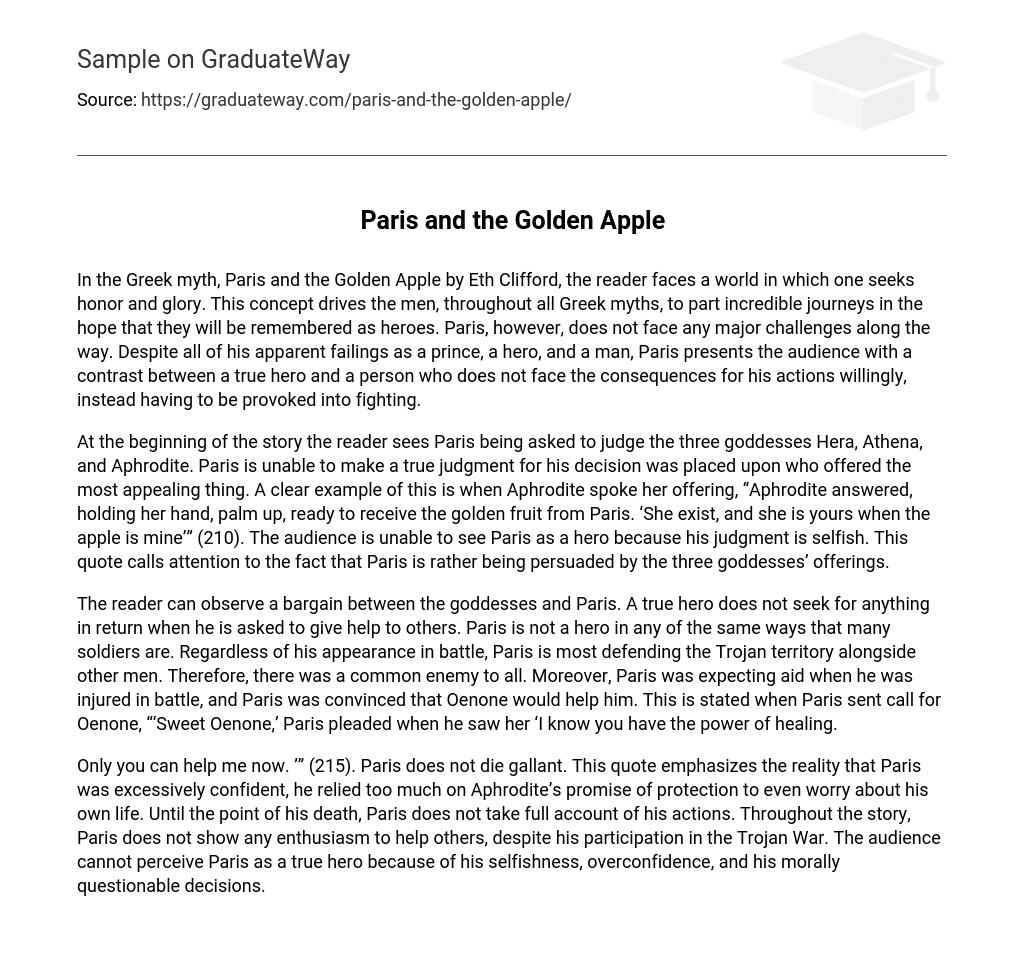In the Greek myth, Paris and the Golden Apple by Eth Clifford, the reader faces a world in which one seeks honor and glory. This concept drives the men, throughout all Greek myths, to part incredible journeys in the hope that they will be remembered as heroes. Paris, however, does not face any major challenges along the way. Despite all of his apparent failings as a prince, a hero, and a man, Paris presents the audience with a contrast between a true hero and a person who does not face the consequences for his actions willingly, instead having to be provoked into fighting.
At the beginning of the story the reader sees Paris being asked to judge the three goddesses Hera, Athena, and Aphrodite. Paris is unable to make a true judgment for his decision was placed upon who offered the most appealing thing. A clear example of this is when Aphrodite spoke her offering, “Aphrodite answered, holding her hand, palm up, ready to receive the golden fruit from Paris. ‘She exist, and she is yours when the apple is mine’” (210). The audience is unable to see Paris as a hero because his judgment is selfish. This quote calls attention to the fact that Paris is rather being persuaded by the three goddesses’ offerings.
The reader can observe a bargain between the goddesses and Paris. A true hero does not seek for anything in return when he is asked to give help to others. Paris is not a hero in any of the same ways that many soldiers are. Regardless of his appearance in battle, Paris is most defending the Trojan territory alongside other men. Therefore, there was a common enemy to all. Moreover, Paris was expecting aid when he was injured in battle, and Paris was convinced that Oenone would help him. This is stated when Paris sent call for Oenone, “‘Sweet Oenone,’ Paris pleaded when he saw her ‘I know you have the power of healing.
Only you can help me now. ’” (215). Paris does not die gallant. This quote emphasizes the reality that Paris was excessively confident, he relied too much on Aphrodite’s promise of protection to even worry about his own life. Until the point of his death, Paris does not take full account of his actions. Throughout the story, Paris does not show any enthusiasm to help others, despite his participation in the Trojan War. The audience cannot perceive Paris as a true hero because of his selfishness, overconfidence, and his morally questionable decisions.





